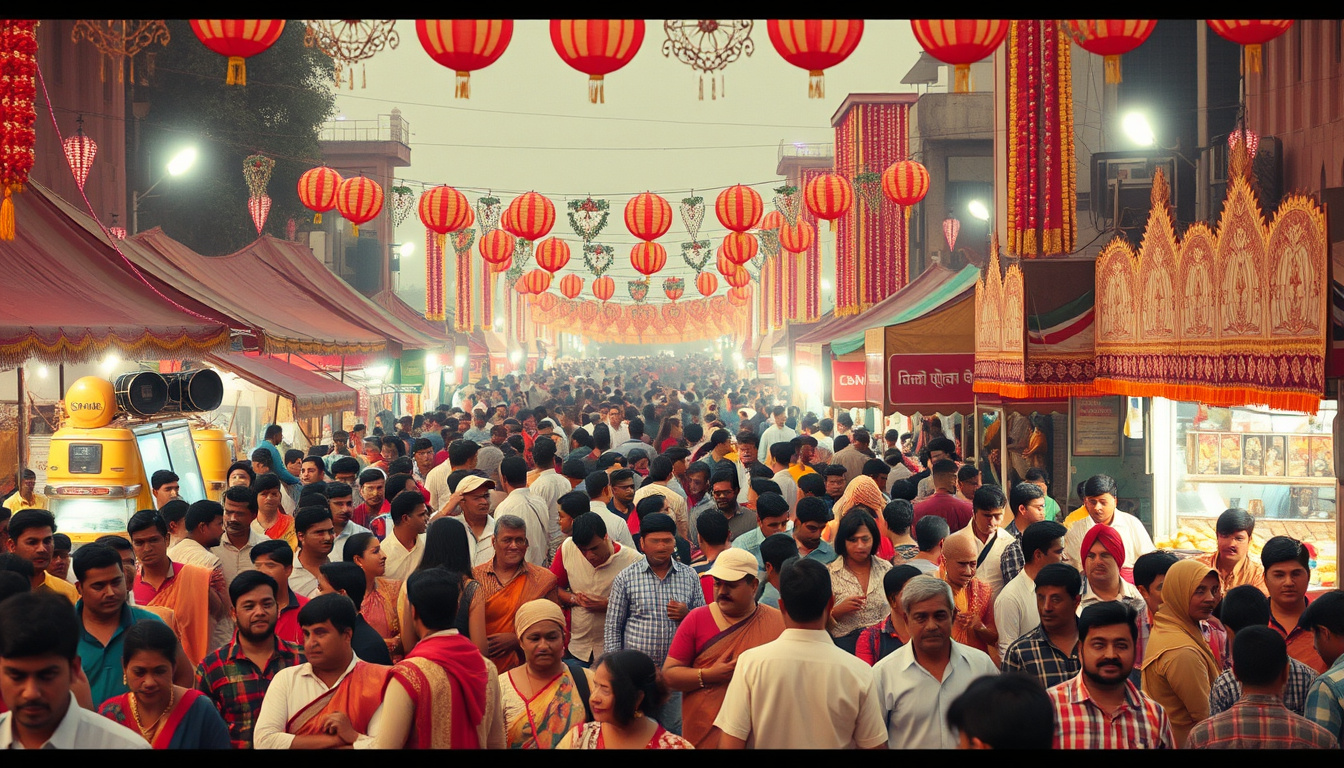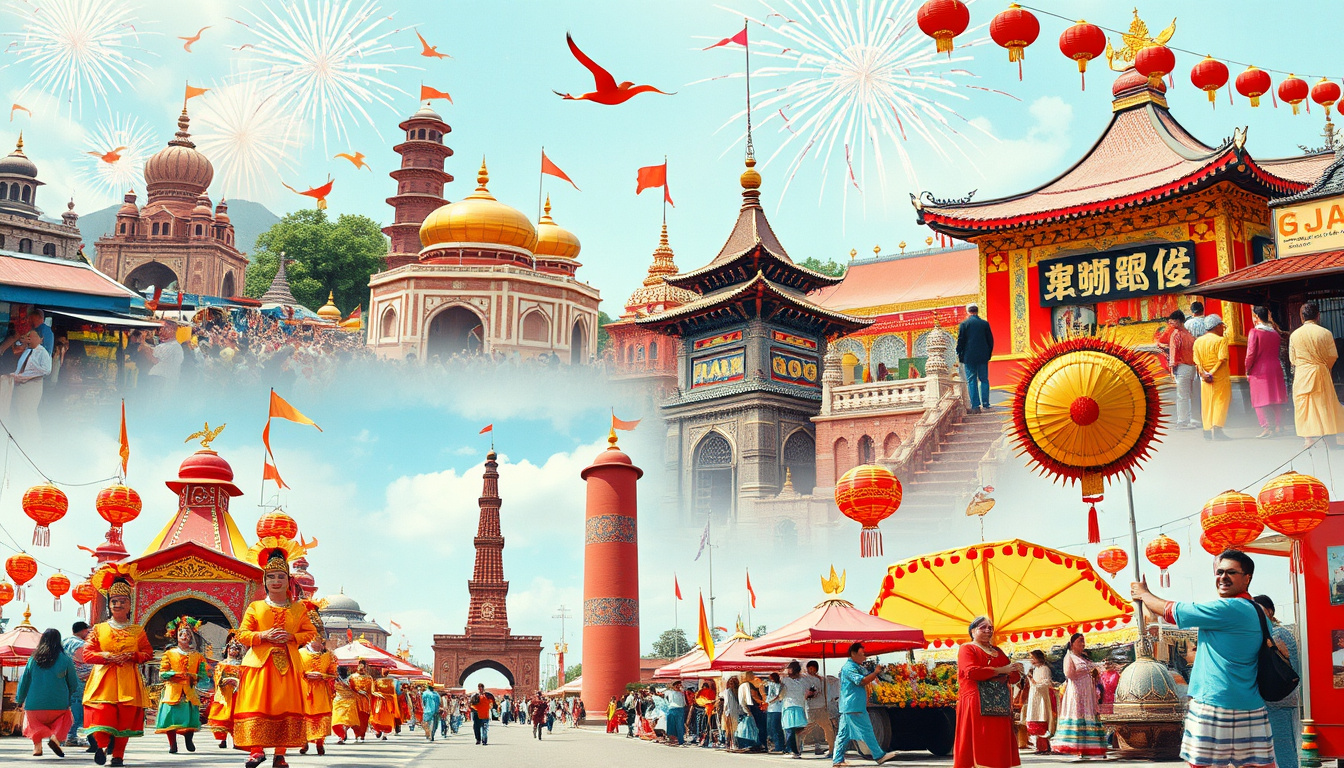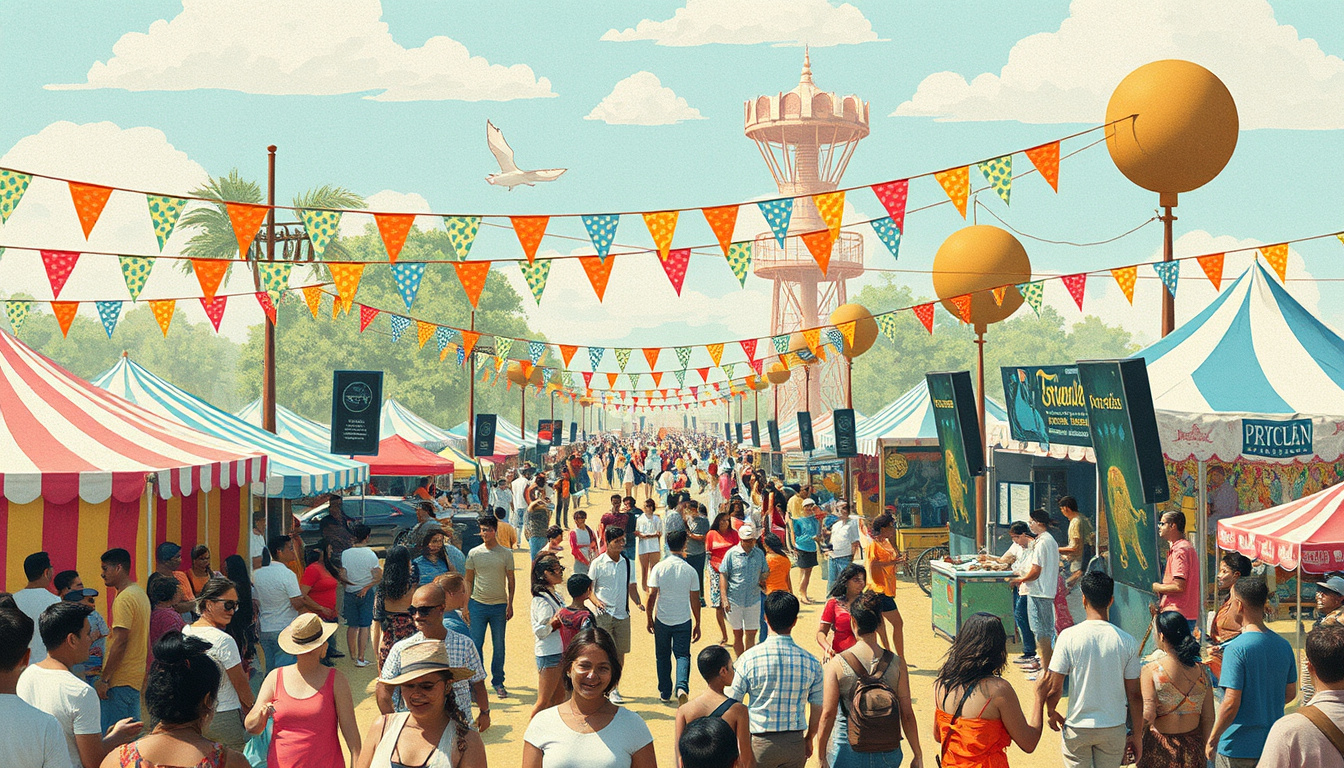Festival culture is a vibrant tapestry of traditions and celebrations that bring communities together, often showcasing regional heritage, artistic expression, and communal joy.
This article delves into the multifaceted nature of festival culture, exploring its historical significance, the diverse types of festivals celebrated globally, the critical role festivals play in fostering community identity, and the challenges facing this ever-evolving cultural phenomenon.
Join us as we embark on a journey through the rich history and promising future of festival culture.

The Main Points:
- Festival culture encompasses a wide array of public celebrations, showcasing unique traditions and practices.
- Historically, festivals have played a vital role in marking agricultural cycles, religious observances, and communal gatherings.
- Around the world, festivals range from music and arts to religious and cultural events, reflecting diverse heritages.
- Festivals strengthen community bonds and foster a sense of identity among participants and attendees.
- As festivals face challenges like commercialization and environmental impact, their future may hinge on sustainable practices and inclusivity.
Definition and Overview of Festival Culture
Festival culture refers to the collective practices, traditions, and celebrations that are centered around organized events, often characterized by joyous activities, cultural performances, and communal participation.
Festivals can vary significantly in their themes and significance, ranging from religious observances and cultural heritage celebrations to music, art, and food events.
These gatherings are not only opportunities for entertainment but also serve as vital platforms for social engagement and cultural expression.
Festival culture plays a crucial role in fostering a sense of belonging among communities, allowing individuals to connect with their heritage while creating lasting memories.
Embracing diverse festival culture can enrich societies by promoting inclusivity and shared understanding across different backgrounds.
Historical Significance of Festivals
The historical significance of festivals is a vibrant aspect of festival culture, illustrating how communities celebrate their heritage and values through time-honored traditions.
Festivals often serve as a reflection of societal norms, religious beliefs, and agricultural cycles, bringing together diverse groups of people to partake in shared celebrations.
From ancient harvest festivals that honor the earth’s bounty to modern-day cultural celebrations, these events foster a sense of belonging and continuity.
The rich narratives woven into festival culture not only preserve history but also enhance community cohesion and promote social interaction.
As we delve deeper into the roots of these events, we uncover layers of meaning that highlight their role in shaping identities, fostering resilience, and nurturing cross-generational connections.
‘Festivals are a celebration of humanity. They remind us that we share a rich tapestry of culture, identity, and tradition that binds us together in our differences.’

Types of Festivals Around the World
Festival culture is a vibrant expression of community, tradition, and creativity, celebrated in various forms across the globe.
From the colorful carnival parades of Brazil to the solemn yet powerful observance of Diwali in India, festivals come in many shapes and sizes.
Some of the most notable types include cultural festivals that showcase local art, music, and cuisine, such as the Edinburgh Festival Fringe, which highlights theatre and performance art.
Religious festivals, like Eid al-Fitr and Christmas, bring together families and communities in shared rituals and celebrations.
Additionally, seasonal festivals like Harvest Festivals or the enchanting Winter Solstice celebrations offer an opportunity for gratitude and connection with nature.
Each festival not only enhances community spirit but also offers a unique glimpse into the customs and values of different cultures, making festival culture a rich tapestry woven from the threads of humanity’s diverse experiences.
The Role of Festivals in Community and Identity
Festival culture plays a vital role in shaping community identity and fostering social bonds among individuals.
These festive gatherings, which often celebrate historical, cultural, and religious significances, create a platform for residents to come together, share traditions, and strengthen ties with one another.
Whether it’s a vibrant music festival, a traditional harvest celebration, or a local art fair, these events allow communities to showcase their uniqueness and heritage.
Participants often engage in various activities, from performances and parades to food fairs and craft exhibitions, immersing themselves in the richness of their shared history.
Moreover, festival culture not only enhances community pride but also invites visitors, thereby boosting local economies.
Ultimately, festivals serve as a unifying force, reminding us of our collective stories and values while encouraging inclusivity and understanding in an ever-evolving society.

Challenges and Future of Festival Culture
Festival culture has become an integral part of modern society, offering communities the opportunity to celebrate art, music, food, and heritage.
However, this vibrant culture faces a multitude of challenges that could impact its future.
One primary concern is sustainability, as the environmental footprint of large festivals can be significant.
Organizers are now tasked with finding ways to minimize waste and promote eco-friendly practices.
Additionally, rising ticket prices and economic disparity can limit access, alienating diverse audiences.
Social media’s influence on festival culture also presents both opportunities and challenges, as it can boost attendance but may dilute the authentic experience.
Looking ahead, the future of festival culture hinges on how organizers adapt to these hurdles while remaining true to their roots, ensuring that these cherished gatherings continue to thrive as inclusive celebrations of community and creativity.
Good To Know:
What is festival culture?
Festival culture refers to the collective practices, traditions, and celebrations that revolve around various festivals, encompassing their social, cultural, and historical significance.
What are some examples of different types of festivals around the world?
There are numerous types of festivals worldwide including religious festivals like Diwali in India, music festivals such as Coachella in the USA, and cultural festivals like Carnival in Brazil, each celebrating distinct themes and traditions.
How do festivals contribute to community and identity?
Festivals foster a sense of belonging and community by bringing people together to celebrate shared traditions, values, and histories, which in turn strengthens cultural identity and social bonds.
What challenges does festival culture face today?
Festival culture faces challenges such as commercialization, environmental sustainability, and the impact of global events like pandemics, which can limit attendance and alter traditional practices.
What does the future of festival culture look like?
The future of festival culture may involve a blend of innovative technologies, greater inclusivity, and a focus on sustainability, as communities adapt to changing social dynamics and environmental concerns.
————————————————————————
Follow the Bimoseto family as we explore the world, one delicious dish at a time! Get our travel tips, restaurant recommendations, and adventure stories – and get inspired for your journeys!
